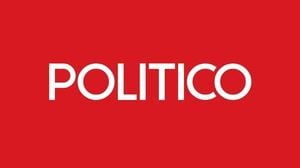In a pivotal moment for South Africa, President Cyril Ramaphosa has emphasized the urgent need to bridge the widening inequality gap between developing and developed nations. Speaking at the G20 finance ministers’ meeting in late February, he articulated a vision for a more equitable global economy, stating, "As the G20 we need deliberate and coordinated efforts to focus on inclusive growth based on responsive trade and investment to grow the incomes of the poor nations and poorest in society and this we should do in our own selfish interests." This call to action underscores a significant aspect of South Africa's rotating presidency of the G20, which this year marks the first time the summit will be hosted on African soil.
Ramaphosa's presidency prioritizes four key themes: strengthening disaster resilience and response, particularly in impoverished nations; ensuring debt sustainability for low-income countries; mobilizing finance for a just energy transition; and harnessing critical minerals for inclusive growth. These issues are increasingly pressing as the world grapples with economic disparities exacerbated by the COVID-19 pandemic and ongoing geopolitical tensions.
However, the path forward is fraught with challenges, particularly in light of deteriorating relations with the United States. On February 5, U.S. Secretary of State Marco Rubio announced via X (formerly Twitter) that he would not attend the foreign ministers’ summit in Johannesburg. He criticized South Africa’s G20 agenda as anti-American, stating, "I will NOT attend the G20 summit in Johannesburg. South Africa is doing very bad things. Expropriating private property. Using G20 to promote ‘solidarity, equality, & sustainability’. In other words: DEI and climate change. My job is to advance America’s national interests, not waste taxpayer money or coddle anti-Americanism."
In March, relations soured further when Rubio declared South African ambassador to the U.S. Ebrahim Rasool "persona non grata," accusing him of being a "race-baiting politician who hates America." This escalating diplomatic rift raises questions about South Africa's ability to effectively champion its agenda at the G20 without U.S. support. Menzi Ndhlovu, a senior analyst at Signal Risk, noted, "If you look at global financial structures, America is still the largest consumer, the largest aid donor, and the most influential actor in bodies through which G20 agendas unfold, such as the IMF, World Bank, and WTO. If you have America outside of any G20 agreement, it’s unlikely that it’s going to gather momentum."
Despite these challenges, Elizabeth Sidiropoulos, chief executive of the South African Institute of International Affairs (SAIIA), believes that South Africa can still make strides in areas where U.S. participation is not critical. She pointed out that while certain reforms to the IMF and World Bank may be stalled due to U.S. veto power, progress can still be made on climate change initiatives and reforms to global governance institutions. "South Africa can work on maintaining the consensus on climate change even if the world’s second-largest emitter isn’t at the table," Sidiropoulos said.
Moreover, the ambitious financial commitments Ramaphosa seeks to address inequality may be increasingly difficult to secure in a shifting global landscape, particularly with a more skeptical U.S. administration. In March, the U.S. decided to cut loans for the multi-billion dollar Just Energy Transition Partnership (JETP), which supports South Africa’s transition from coal to cleaner energy. Ndhlovu expressed concern that without U.S. backing, richer nations may hesitate to provide necessary funding. "Europe is not in the position to effectively reduce the funding gap. Frankly, they are panicking at the moment because they need to mobilize money for defense," he stated.
In an effort to bolster its financial position, African nations have long criticized established credit rating agencies for their perceived bias, which often results in higher borrowing costs. A 2023 report by the United Nations Development Programme revealed that African nations could save as much as $74.5 billion if credit ratings were determined using more objective criteria. In response, the African Union (AU) is set to launch its own credit rating agency, the African Credit Rating Agency (AfCRA), in the second half of 2025. This initiative aims to provide more favorable credit assessments for African countries and potentially reshape the global credit rating landscape.
As South Africa navigates its presidency, it faces the dual challenge of promoting continental unity while addressing individual national interests. Christopher Vandome, senior research fellow at Chatham House, cautioned that competition among African nations may hinder collective progress. He noted, "In reality, I think that we’re going to start seeing competition between countries again. They will go to all the summits and talk the talk on regional industrialization, but when it comes down to it, if they’ve got a bilateral approach for specific things in their country, they’re going to go for it."
Sidiropoulos echoed this sentiment, warning of the risks of fragmentation amid rising geopolitical tensions. "When you are in uncertain times, your survival instincts kick in as a country, and there is a very real risk of fragmentation, of being picked off one at a time," she said. She emphasized the need for strong leadership to unify Africa and accelerate economic initiatives through the G20.
The B20, which South Africa also hosts this year, complements the G20 discussions, focusing on inclusive growth and prosperity through global cooperation. The B20 has identified eight priorities, including trade and investment, digital transformation, energy, finance, and industrial transformation, aiming to create actionable policies that drive growth and development.
As the G20 and B20 summits approach, the stakes are high for South Africa. Ramaphosa’s leadership will be crucial in not only addressing domestic economic challenges but also in positioning Africa on the global stage. The outcomes of these summits could significantly influence the continent's future, particularly in terms of investment and international cooperation.
In summary, while South Africa's G20 presidency presents a unique opportunity to spotlight the continent's priorities, the complexities of international relations, particularly with the U.S., pose significant hurdles. The focus on inclusive growth and the drive to address inequality are noble goals, but achieving them will require navigating a landscape marked by competition, skepticism, and the need for cohesive leadership across Africa.




